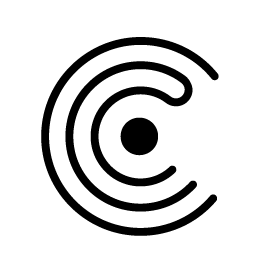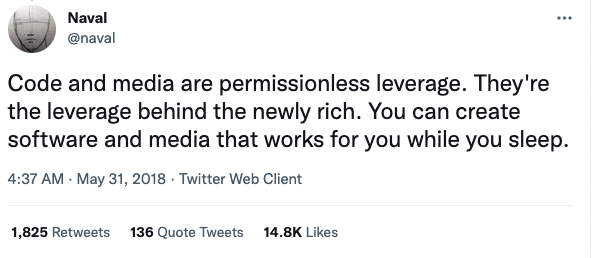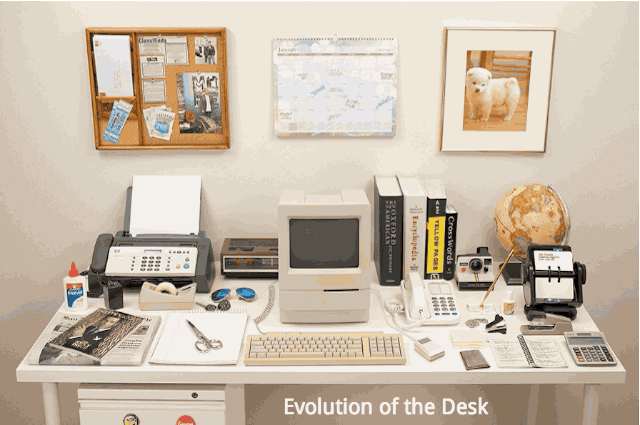A wise man once said, “software is eating the world”.
Why? Because software is the ultimate form of leverage. Software can turn physical matter into pure information – which then can travel at the speed of light to any corner of the earth for free. It can be replicated at little to no marginal cost.
Ask yourself this, did Blockbuster ever have a chance against Netflix from a structural standpoint? How could CD manufacturers compete with iTunes? They couldn’t. How could Kodak, who invented the digital camera, compete with the iPhone?
What It Has Already Eaten
Software has already eaten the VHS player, the television, the radio, the library, instruments, the file cabinet, yardsales (Craigslist), the mall (Amazon), the CD, maps, checkbooks, the fax machine, physical mail, physical photos, calendars, the Rolodex (Facebook), and a host of other things.
Computer code can be a pilot. Or a driver of a car. Or the best restaurant recommender in the world. It doesn’t sleep. It can travel at the speed of light.
Anything that software can eat, it will eat.
#1 - The Human Nose
As of right now, computers can mainly provide feedback to our sense of sight and our sense of hearing. Some VR games are starting to introduce haptics (sense of touch) into the experience through the use of vibration. Another example would be Fitbit which vibrates every time you hit your daily step count.
Eventually, computers are going to be able to receive and process smells.
Do you know how dogs can smell cancer or other diseases before doctors are able to diagnose them? Or how dogs are used to detect drugs? Now imagine when computers can do this 100x better.
They will be able to help in the medical field with diagnosis or with detecting harmful materials like Carbon Monoxide at an alarming rate. Initially, dogs will be better. But gradually, then suddenly computer smell sensors will never be out-competed.
#2 - Auto Mechanics
Some blue-collar jobs are up for grabs from the robots.
Did you know that there is a device, that is about the size of a Walkie-talkie that can diagnose a car’s engine problems? You simply place it on a car’s engine block and let that car run for 60 seconds and it can analyze what’s wrong with the car.
This isn’t science fiction. It exists. It’s called the ACV AMP.
The microphone picks up the vibrations and specific sounds from the engine block and translates them to your phone. View a video of it here.
#3 - Your College Degree
At the end of the day, what exactly is your college degree? It’s a credentialing system. These credentials, in theory, are supposed to communicate:
- Ability to stick to a curriculum for multiple years
- Relevant knowledge obtained
- Your implied skills
What if there is another approach to credentialism that is WAY more transparent and ensures more relevant knowledge for a 2022 world? A method that gets feedback in real-time, that’s nearly impossible to fake, and as easy to prove as sharing a URL.
Ever hear of the term “crypto credentials”? They are skills or tasks completed and verified by blockchain technology that is stored on an open ledger, for everyone to see and verify Ask me this, what’s easier to fake, a Cornell Diploma or 1,089 commits to your GitHub profile?
If you can see a Web Developer has successfully written at least 300 lines of code every single week for the past 36 months and has built working applications, isn’t that a more reliable signal of competency than a Computer Science degree?
Some computer science degrees don’t even require writing computer code, you can get a diploma just by studying the theory of computer science.
Imagine this trend expanding. Imagine public repositories for the most in-demand & measurable skill sets. A living breathing portfolio for:
- Online Writing
- SEM (paid search engine marketing ads)
- SEO
- Graphic Design
- Your sales skills (with close rates and amount of outbound calls per day)
Your abilities, grit, and creativity are now all measurable and public. A more honest form of credentials – one way more in-depth and true than any college diploma could be.
That takes care of the skills and sticking to a curriculum needs, but what about the knowledge? How can you ensure you’re reading and absorbing the “right material”. Isn’t that what the institutions are for? To guide us to the most useful content?
The current college material model is not just antiquated, it’s obsolete. It’s a top-down model where administrators and professors who are disconnected from honest feedback (the free market) choose what makes up a “proper education”.
This concept is and will be, as outdated and ass-backward as the marriage of church and state. Rote memorization of facts isn’t necessary when you have the world’s information in your pocket. What is necessary is converting your knowledge into an audience or an income. You do that through creations, not credentials. Creations of blogs, tweets, podcasts, Youtube videos, etc. This approach kills two birds with one stone. It puts out a living resume and it allows you to monetize the content.
#4 - The Spoken Word
Eventually, we won’t need to talk out loud to communicate. We’ll be able to think to each other. This isn’t science fiction. The company already exists, it’s called Neuralink – Elon Musk is behind it.
The company has already been able to implant Neuralink into pigs and monkeys. Here’s a video of a monkey playing pong telekinetically:
Neuralink will also replace the need for typing into computers. There is a limitation for inputs into computers right now. The average person types at a speed of about 40 words per minute. Imagine how many words you can think per minute.
The performance shift will be like will be as comparative as human beings riding bicycles compared to running. A wise man once said that the computer is the bicycle for the human mind. Neuralink will make this more of a reality.
For a deep dive into the “why” and “how” behind the company go read Tim Urban’s post-Neuralink and the Brain’s Magical Future on Wait But Why (my favorite blog on the internet).
#5 - Money
The technology of money has existed for thousands of years. Without, humans can’t move past the barter system and our civilization will always have its limits.
We’ve used hundreds of different tools for the money. Money has been glass beads, sea shells, cattle, salt, limestones, rare metals (gold, silver, etc.), and hundreds of other objects.
Starting in the 1990s money started to become digital. All the banks who once kept your mortgage, checking account, savings account, and any other ledger started migrating that data from paper to packets. It was a slow and gradual process, but once it started it was irreversible.
Around 97% of all US currency in the world today is in the form of ones and zeros sitting on some government server. So, money is already the software, it’s just centralized on permission-based servers governed by nation-states.
However, this software product has limits and drawbacks. This software product can’t be sent from server to server at the speed of light. Sometimes when you make a wire transfer from a bank in the U.S. to a bank in India, it can take 3 weeks to clear.
This software product isn’t scarce (paradox of a concept I know). At the press of some keys on a keyboard, an unelected official of the Federal Reserve can dilute your purchasing power.
Your access to this software product can be revoked on a whim. Take a look at the Canadian Trucker Protest. If you simply donated to the protest, not even participated, the government could have locked you out of your own access to this software money.
Money will eventually become 100% digital and it won’t be controlled by centralized authorities. This isn’t a new problem people have just started trying to solve.
Trying to create “digital money” has been a problem software engineers have been trying to crack since the 90s, if not earlier. The most famous group that made this their mission was the Cypherpunks.
In 2009 a pseudonymous computer programmer named Satoshi Nakamoto launched the first viable project to actually accomplish this goal. I’m of course talking about Bitcoin. The world’s first peer-to-peer open source money. Money that is truly 100% software.
Bitcoin still has a lot to accomplish before it can become the world’s reserve currency but it looks like it is well on its way. Money becoming pure software was inevitable. We’re over 13 years into the Bitcoin experiment and it looks like it is here to stay. There has been an entirely new sector of the economy that has been created as a result of cryptocurrency. Some may argue that Bitcoin won’t be the winner for global money, which is fine. The point being is that the adoption of money as pure software is inevitable.
#6 - The Corporation
There are two main legal entities you can categorize an organization as. A nonprofit or a for-profit entity. Then within the for-profit entity (aka Corporation), there are a few subcategories like a sole proprietorship, a Limited Liability Company (LLC), an S-Corporation (S-Corp), and a C-Corporation (C-Corp).
Those are your options to form a legal entity recognized by the United States government in order to conduct commerce of any kind. That’s it. There’s perceived flexibility within the corporation “bucket” but is it really that innovative? The last form of innovation came from Wyoming in 1977 when they created the LLC.
What if there’s something else? Another type of entity that’s in its infancy stages and is a whole new category. An organizing body that is purely software, can take many more forms, has a more flexible leadership structure, and harnesses collective intelligence much better than the current two options. I’m referring to a DAO or Decentralized Autonomous Organization.
DAOs have already been legally recognized by Wyoming, just like they were the first to legalize the LLC. Expect many more states to follow suit.
So what is a DAO exactly?
“A DAO, or “Decentralized Autonomous Organization,” is a community-led entity with no central authority. It is fully autonomous and transparent: smart contracts lay the foundational rules, execute the agreed-upon decisions, and at any point, proposals, voting, and even the very code itself can be publicly audited.
Ultimately, a DAO is governed entirely by its individual members who collectively make critical decisions about the future of the project, such as technical upgrades and treasury allocations.”
Source: https://consensys.net/blog/blockchain-explained/what-is-a-dao-and-how-do-they-work/
The “board” or leaders of a DAO can work from anywhere, be anyone, and can even be anonymous. It’s a corporation for the 21st century built entirely on software.
#7 - Countries
Yes, we’ve all heard of the Nation-State or countries, but what is next in the evolution of human civilization?
You may have just said, “what the fuck are you talking about Peter?”. Countries have always existed, and they will continue to exist.
Actually no, for over a thousand years the main governing authority was actually the Catholic Church. That institution controlled the army, “morality”, and laws. The Pope literally had the authority to torture people and had a standing army. It wasn’t until the printing press was invented, and as a result, the Peace of Westphalia occurred that gave rise and legal recognition to the nation-state as a “legal” entity.
There was no concept of being a German, Irish, Thai, Brazilian, or Kenyan “citizen” before that point in human history. The nation-state hasn’t been the only form of governance, wasn’t the first form of governance, and won’t be the last.
Governance systems provide base-level infrastructures like roads, hospitals, firefighters, police, and national security via a standing army. The services that can be organized in the cloud to be distributed more equitably and effectively eventually will be because of market forces.
This isn’t a pipe dream. It’s happening, people are trying to build it. Ever hear of the term “Network State”?
It’s the next step in a form of governance beyond the country. There is a group of people, led by Balaji Srinivasan, trying to build the “playbook” for creating them. Learn more about it at The Network State.


